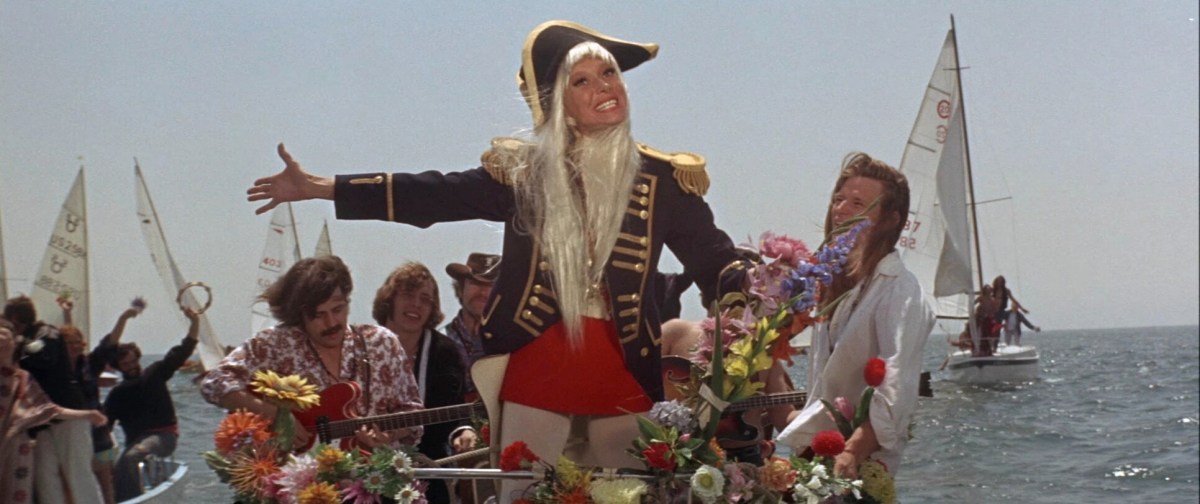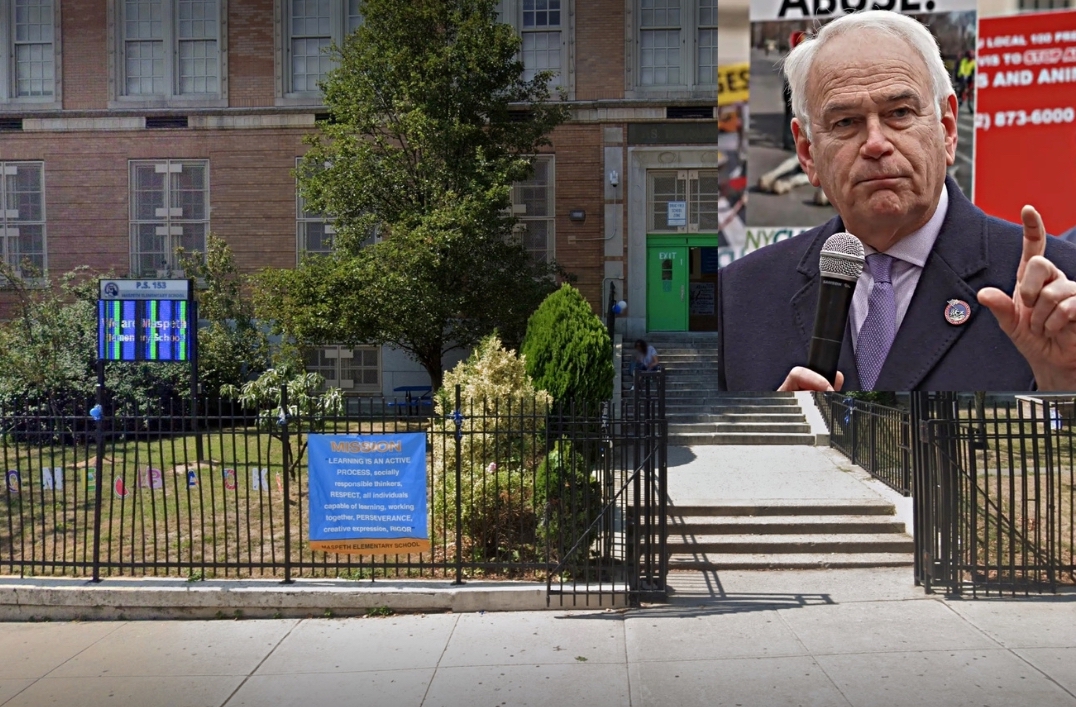‘Hurry Sundown,’ ‘Skidoo’ and ‘Such Good Friends’ From 1965 through the end of his career, Otto Premigner was box office poison. The filmmaker (and occasional actor) had a shape-shifting — and sometimes highly successful — career. He had been a film noir trailblazer (“Laura”). He was a regular button-pusher, challenging censors with sex (“Forever Amber,” “The Moon is Blue”), drug addiction (“The Man with the Golden Arm”), blunt discussion of rape and sexual assault (“Anatomy of a Murder”) and the appearance of Hollywood’s first screen gay bar (“Advise & Consent”). Before 1965 he was churning out epic blockbusters, weaving from his own Judaism (“Exodus”) to Catholicism (“The Cardinal”). But in 1965 Preminger — as “Trainspotting”’s Sick Boy would put it, in his “unifying theory of life” — lost it. His Pearl Harbor movie, “In Harm’s Way,” underperformed, despite starring no less than John Wayne and Kirk Douglas. Audiences too stayed away from his smaller follow-up, the British mystery-thriller “Bunny Lake is Missing” (one of his best-ever films). Preminger still had a contract with Paramount for four more pictures. They all tanked, and sometimes worse. The most successful part of Preminger’s career from this period was, as it were, his appearances as Mr. Freeze on the “Batman” TV show — and even there he had to share the role with George Sanders and Eli Wallach. Not that box office — and even critical — reception is an accurate reflection of quality. Three of the films from this period have been reissued on handsome albeit bare-bones Blu-rays from Olive Films: 1967’s “Hurry Sundown,” 1968’s “Skidoo” and 1971’s “Such Good Friends.” The first two are notorious bombs that were regularly wielded by critics and columnists to wail the once great Preminger into submission; the third was hailed as a minor semi-comeback that didn’t pan out, and whose deeply traumatized star, Dyan Cannon, reinforced the stereotype that Preminger was one of the most difficult dictators in the business. None are great, though one is very good, but all are fascinating works that could only have come from one deeply eccentric and uncopyable talent. It’s not clear which had the worse reputation at the time: “Hurry Sundown” or “Skidoo.” But “Hurry Sundown” went in to production with the loftiest of intentions. Initially intended to be the next “Gone with the Wind” — before, that is, the novel on which it’s based failed to make much of a splash — it’s a look at racial strife made at the height of the civil rights movement, observing the battle in the 1940s between a Southern richie (Michael Caine) and two low-income land-owners: one white (John Philip Law), the other black (Robert Hooks). Everything would seem to point towards a capital-I Important history lesson; the shoot was even held in Georgia, which went as well as one would imagine. Racists would fire bullets into trailers and harass black cast members who used the hotel pool — all new superstar Caine’s first significant introduction to America, mind you. What went wrong? Well, Caine’s inevitably amusing Southern-by-way-of-Cockney accent was not the worst of it. “Hurry Sundown” was raked over the coals for its outdated look at race, its over-the-top melodrama, its even more over-the-top sexuality and a climax both ridiculous and weirdly disengaged. For ages “Sundown” was the runt of the Preminger litter, even considering such whipping children as the Jean Seberg-starring “Saint John.” Nearly 40 years later the hoopla seems overdone. It’s true Preminger seems only fitfully engaged. He doesn’t seem concerned with dialogue that seems noticeably expository or that Caine seems uncommitted in a way that would prefigure future turns in films he clearly saw as disasters. Preminger regularly lets the movie go wild, as in a scene where a gotta-have-it Jane Fonda, as Caine’s moneyed wife, stops short of felating a bottle of Old Crow, and then the reed of his saxophone. At the same time there is very much someone at the helm of the madness. There’s still Preminger’s signature fluid long takes, which cram gobs of action into one fluid, masterly shot. As ever, these are about more than technique; the detachment of the shots, often holding back from the action, reflect Preminger’s unusually observational worldview, in which he looks on from a distance at clashing personalities and people, judging which side to take, if any. He can’t control the plot’s more ludicrous happenings, but he does tone down what could be insufferable piety. In fact, at times “Hurry Sundown” doesn’t appear to be about much of anything, including about race. It’s about itself. It regularly slips into comedy, including the silliest courtroom scene ever put into an issue film. Calling it a disaster would be easier, but truth is it’s simply a well-meaning semi-wreck. Most filmmakers would have played it safe after getting the worst notices of his career, but Preminger, in his predictable unpredictability, plowed full-on into the unknown. Released the next year, “Skidoo” is his counterculture picture — Otto’s acid movie — made when Hollywood was cranking out almost uniformly tin-eared films for the swelling hippies. But while there is a swarm of doping long-hairs, the majority of the players were olds. Jackie Gleason headlines a cast largely made of graying, sometimes fading TV stars, including three of Preminger’s fellow “Batman” baddies, plus Groucho Marx as a Mafioso head named “God,” who lives on what was in real life John Wayne’s boat, the Wild Goose. There’s also Carol Channing attempting to seduce that most Timothy Leary-like of movie stars: Frankie Avalon. The clash between olds and youngs is reflected in the plot. At the behest of Marx’s “God,” Gleason’s mobster fakes his way into prison to take out an old associate (Mickey Rooney!). Instead he accidentally licks some LSD, has a very unconvincing trip (this despite Preminger dropping with Timothy Leary as his guide) then busts his way out of the joint by dosing the entire jail. Conceived by writer Doran William Cannon — soon of another crazed comedy, Robert Altman’s “Brewster McCloud” — as both a madcap farce and an experimental narrative, it’s instead flattened out by Preminger, who rarely did comedy, and for a reason: while witty in person, he wasn’t very funny. But who says laughs are necessary in a comedy? “Skidoo” is more interesting as a bizarre theoretical experiment. The Otto long take master shots are present and accounted for; even the hyper-cut opening is technically a single shot, of a TV screen undergoing aggressive channel-surfing (including a butchered version of his “In Harm’s Way”). So too is the Otto detachment, which here shows off his take on modern times, where old entertainment has soured into a mafia that forces itself onto the culture, refusing to budge for the young that want nothing to do with it. It’s a deeply cynical, maybe even defeatist movie that touts its own irrelevancy, albeit gleefully. This is a movie that ends with its credits sung by the man who wrote them, Harry Nilsson — again, not the most hippie of the era’s talents. Moreover, he makes sure to close out Groucho Marx’s screen career with not only his worst ever screen performance (by Groucho’s own admission), but with the final sight of him on a dinghy, smoking a joint with Austin Pendleton. That’s entertainment! Olive Films skips over Preminger’s next film, the also unloved Liza Minnelli chat-a-thon “Tell Me That You Love Me, Junie Moon,” but they do end on a high-ish note. Made in 1971, “Such Good Friends” is the most successful of the latter-day Premingers, in part because he had a good collaborator. Elaine May adapted what was a stream of conscious novel, by Lois Gould, about a Manhattanite (Dyan Cannon) who discovers her husband’s (Laurence Luckinbill) infidelity after a superfluous operation leads to perhaps fatal complications. Thrown into disarray, she wrestles with her entire swanky, cloistered lifestyle and its patrons, which she suddenly views with bitter suspicion. May’s name is not on the finished product, but not because she disowned it: she simply refrained from taking credit for works she didn’t also direct, and was pissed when Preminger revealed that billed writer “Esther Dale” was in fact her. As with “Skidoo,” subject and director are not a good match, and that’s part of what makes it interesting. Though Preminger likes to cram chaos into his single takes (crammed into a 1.77:1 aspect ratio rather than wide and open Cinemascope frames), he surrenders to the writer, jumping around a neurotic and intentionally meandering narrative and even into sometimes ill-advised fantasies (one involving too much Burgess Meredith). Where he asserts himself is the sour tone, which comes off most clearly in Cannon’s exhausted performance. Preminger bullied the actress soon as they started, to the point where she stayed as far from her director as possible when the cameras weren’t rolling. Though initially she would simply admit that his directing style was “different,” Cannon soon launched into tirades against him worthy of his abrasive style itself. His treatment of her was undeniably unpleasant, but it does, for whatever it’s worth, result in a unique and even moving performance. In fact his notorious, temperamental behavior regularly got results that feel terrible while being shot but look great on-screen. “Skidoo” actor Austin Pendleton has even confessed that, after initially bullying him, Preminger wound up teaching him all he ever needed to know about screen acting. To the last, Preminger was one unpredictable guy.
Olive Films
$29.95 each
Disc Jockey: Three of Otto Preminger’s bombs get new life

Provided
Follow Matt Prigge on Twitter @mattprigge


















